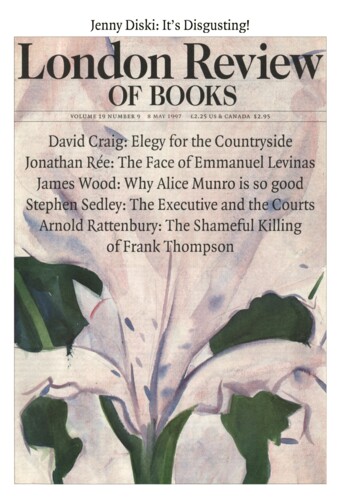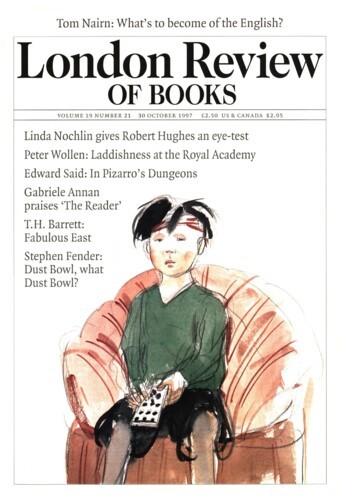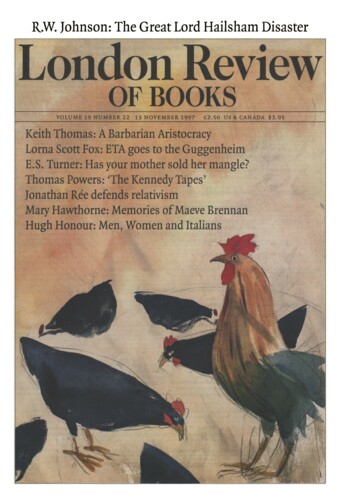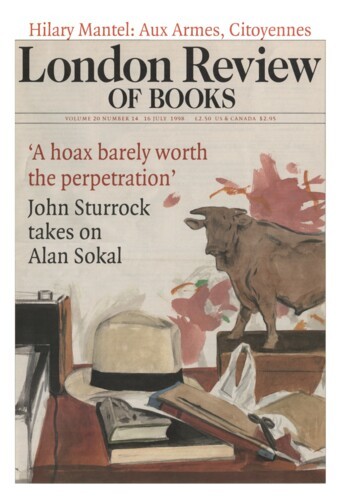Shee Spy
Michael Dobson, 8 May 1997
Twenty years ago, when Maureen Duffy first published The Passionate Shepherdess: Aphra Behn, 1640-89, Behn was still known principally as the celebrated but largely unread founder of women’s writing, the figure who had been hymned but effectively dismissed by Virginia Woolf in A Room of One’s Own (1929). ‘All women together ought to let flowers fall upon the tomb of Aphra Behn, for it was she who earned them the right to speak their minds,’ Woolf wrote, only to declare Behn’s actual writings to be so much cheerful hack-work, of interest only as the hack-work of a woman. Since Duffy set about contesting this verdict, however, things have changed, and the appearance of this vastly fatter life of Behn (together with the completion of Janet Todd’s seven-volume edition of The Works of Aphra Behn for Pickering and Chatto) confirms the scribbler’s accession to the status of a fully-fledged Author.




